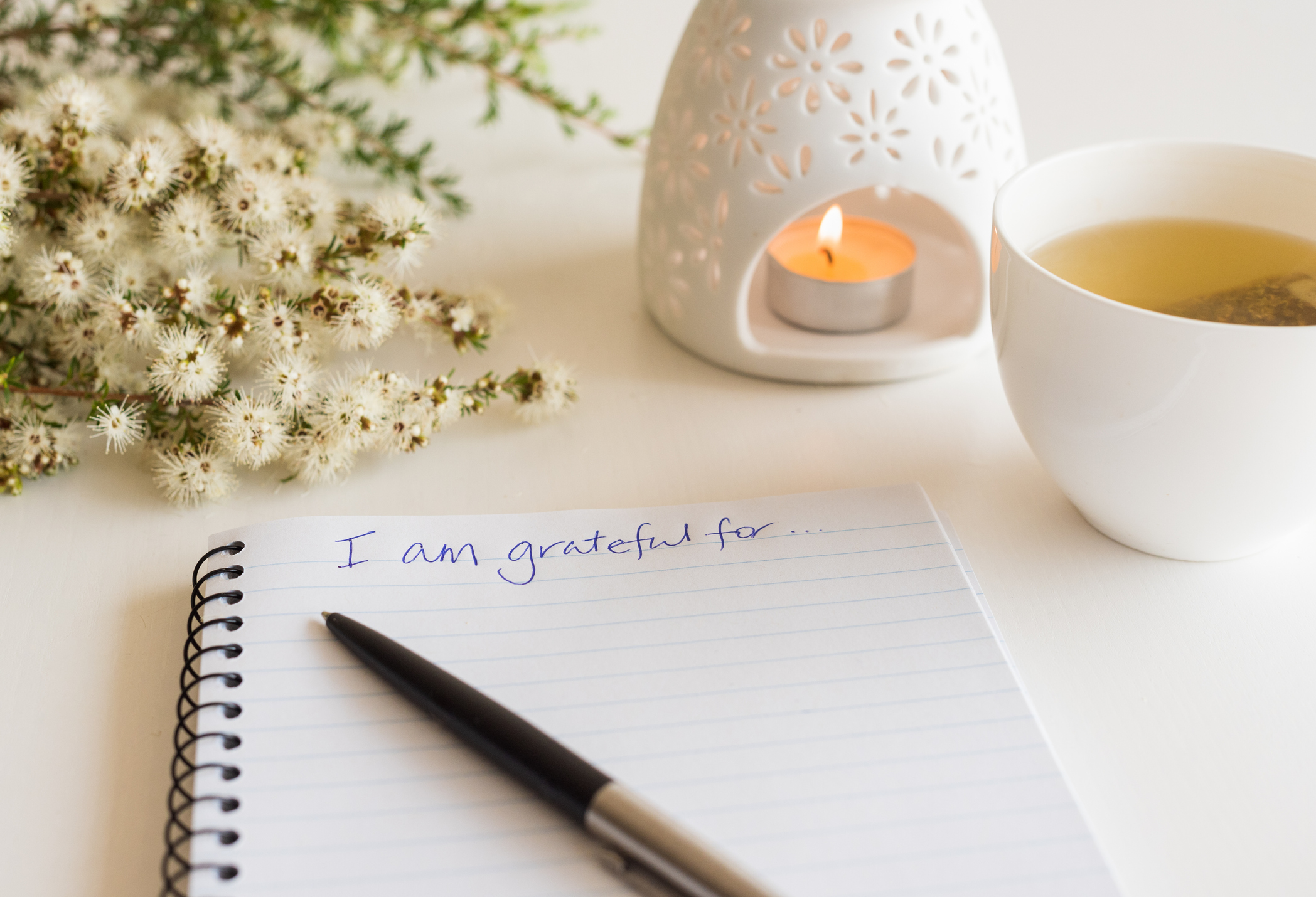The arrival of the holiday season often brings with it the stress of busy social calendars, procrastinated shopping and family obligations. Brittney Schrick, extension associate professor and family life specialist for the University of Arkansas System Division of Agriculture, said that during this time it’s important to slow down and practice gratitude.

“Gratitude is a little bit more complex than thankfulness,” Schrick said. “It’s about being intentionally appreciative for the things that sustain your body, your family, your life and your community in deeper ways.”
There are many ways to practice gratitude, including keeping a journal or writing a daily gratitude list. Schrick said the most important element of this practice is the intention behind it.
“Practicing gratitude is an intentional process,” she said. “It can be at a certain time of day, or week, or even a certain time of year, where we really focus on that appreciation as a part of feeling good about our place and our lives — even if everything isn’t perfect.
“Finding little nuggets of things that are good — your heart is beating, your body is moving, you have loved ones, and the sun is shining — can help take the pressure off of the things that are not going as well as we’d like them to,” Schrick said.
Schrick said she also suggested using gratitude to pull oneself out of difficult moments.
“One of the ways that I personally do this is if something is bothering me, like being stuck in traffic with someone blowing their horn at me, I try to reframe it,” she said. “Traffic may be annoying, but my car is running, and I have my favorite drink in the cupholder. This is a way that we can refocus on something that is going right.”
Acting on gratitude can also look like giving a friend or family member a call to let them know how appreciated they are.
“That can be huge for people,” Schrick said. “Imagine someone telling you that they’re grateful for you as a person. How good does that feel? It can be awkward to say, especially for people who aren’t very emotive, but it can go so far.”
This is an important element of gratitude: sharing it with others through daily acts of appreciation. This could be through thanking one’s barista or gas station cashier, or at the very least, pausing before acting in frustration.
“If you can interrupt your hand before it honks your horn, or interrupt yourself from saying something unkind, you’re putting positivity into the world,” Schrick said. “You don’t know how that’s going to impact the people around you, because kindness has a ripple effect.”
Gratitude can also go a long way towards helping people feel less lonely, especially during the holidays.
“Think about someone you know who may be isolated, especially older adults who live alone,” Schrick said. “We have more older adults living alone than ever before because this generation of older adults is the biggest we’ve had. Don’t hesitate to reach out to grandma or grandpa, an aunt or uncle, or a neighbor. Let them know you’re thinking about them.
“Loneliness and social isolation can lead to depression, or this person feeling like they’re a burden,” she said. “Making sure they know that they’re not forgotten is really important. It also makes a point of intentional connection. Especially for people who may have lost a loved one since the last holiday season, or lost mobility and independence, reaching out to them is rarely going to be a wasted act.”
Gratitude’s benefits
Practicing gratitude also has an impact on physical and mental health.
“By training ourselves to focus on the positive aspects of things, even in a stressful moment, it can lower your blood pressure and the stress hormones in your body, both of which are known to cause long-term physical health problems,” Schrick said. “Anything you can do to reduce stress is beneficial to you in the long and short term.”
Though gratitude cannot “fix” mental health issues that are chronic or genetic, it can provide an important mood boost, “or at least keep your mood from lowering,” Schrick said.
“If you can pull yourself out of a spiral of anxiety by reminding yourself, ‘Well, here are the things that are good,’ that can be genuinely beneficial, especially in conjunction with other treatment,” Schrick said. “It certainly does not replace any professional treatment, but it’s a great way to get into a general practice of trying to improve the way we talk about ourselves and the world around us.”
Sign up for HPJ Insights
Our weekly newsletter delivers the latest news straight to your inbox including breaking news, our exclusive columns and much more.
Because gratitude requires paying attention to what one has, rather than what one lacks, keeping gratitude at the forefront can also prevent the urge to spend excess money during the holidays.
“Paying attention to what you are grateful for can help you to really stay those emotions that lead to overspending,” Schrick said. “Even if you can afford it, this can help prevent you from buying things that aren’t adding to your happiness or that of the person receiving the gift.”
For parents, talking about thankfulness with children can be helpful, but Schrick said modeling this behavior can be more effective.
“Making the choice to tell your child that you’re grateful for them, and letting them see you extending gratitude to others, is as meaningful, if not more so, than just having conversations with them,” Schrick said. “They’re going to do what they see you doing.”
To help develop a grateful attitude in children, Schrick said it’s important to consciously make time for it.
“This can look like centering family time where you don’t have phones at the dinner table, or you go around and talk about your highs and lows of the day,” she said. “And don’t just do that on Thanksgiving. Sometimes these conversations can feel like pulling teeth, but they will appreciate it when they’re grown.”



